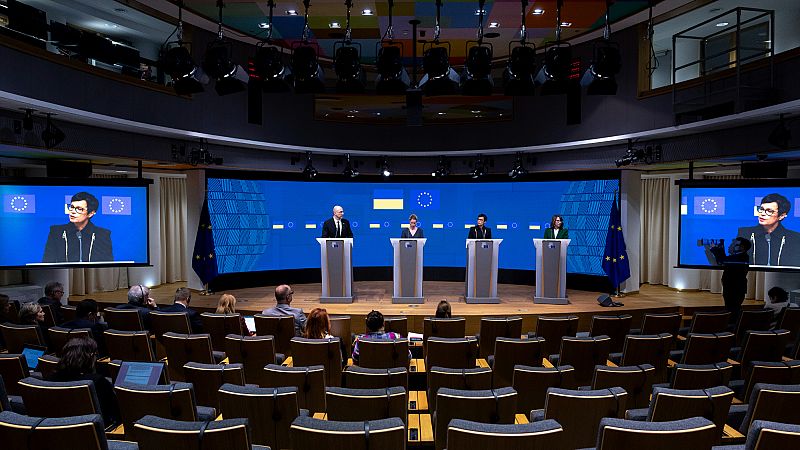European Union announces new asylum measures

Migrants from Bangladesh, Colombia, Morocco and Tunisia are unlikely to be granted asylum in Europe and should have their applications fast-tracked so they can be sent home more quickly, the European Union’s executive branch said on Wednesday.
The European Commission said that seven countries – also including Egypt, India and Kosovo – should be designated “safe third countries.” Applications by their citizens for international protection would be wrapped up in 3 months rather than the usual 6.
"We streamline and we speed up the processing of asylum applications, but we do not cut back on fundamental and human rights," said European Commission spokesperson Markus Lammert.
"What it does is it allows for faster procedures for those whose asylum applications are likely to be unfounded," he added.
In total, more than 200,000 people from these countries applied for asylum last year.
A year ago, E.U. nations endorsed sweeping reforms to the bloc’s failed asylum system. The rules were meant to resolve the issues that have divided the 27 countries since well over 1 million migrants swept into Europe in 2015, most fleeing war in Syria and Iraq.
But the new rules are not set to enter force until at least June 2026, and the commission is desperate to speed up procedures, including by deporting people more quickly, to ease pressure on migrant reception facilities.
"This E.U. list brings harmonization across member states," said Lammert. "And this will ultimately help reduce secondary movements and also asylum shopping."
The plan must be endorsed by E.U. member countries and the European Parliament before it can enter force.
Under it, asylum applications by people coming from countries that are candidates to join the E.U. – Albania, Bosnia, Georgia, Moldova, Montenegro, North Macedonia, Serbia and Turkey – would also be fast-tracked.
On top of that, E.U. members could speed up proceedings for people coming from countries where 20% or less of applicants are granted international protection in Europe. The so-called recognition rate for the seven “safe third countries” is 5% or less.
Yesterday

